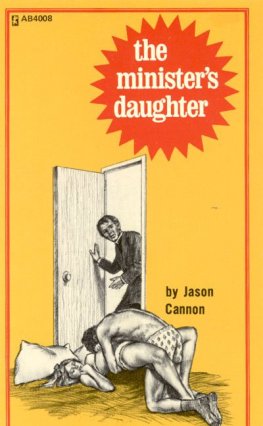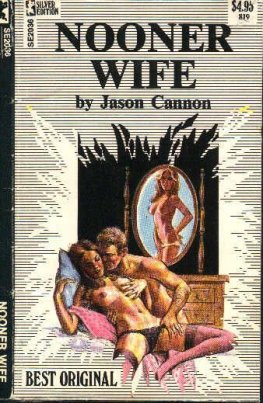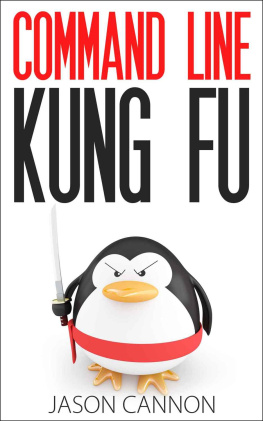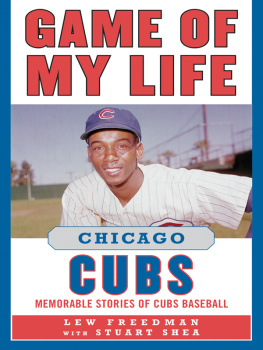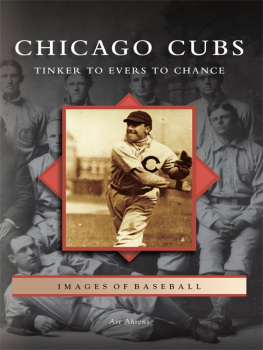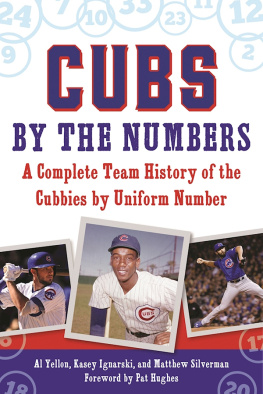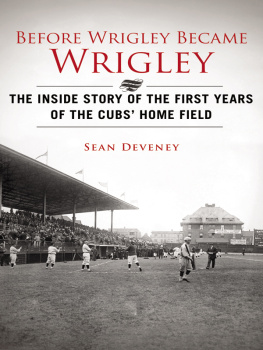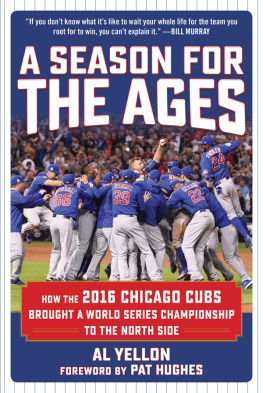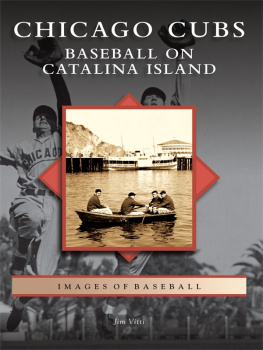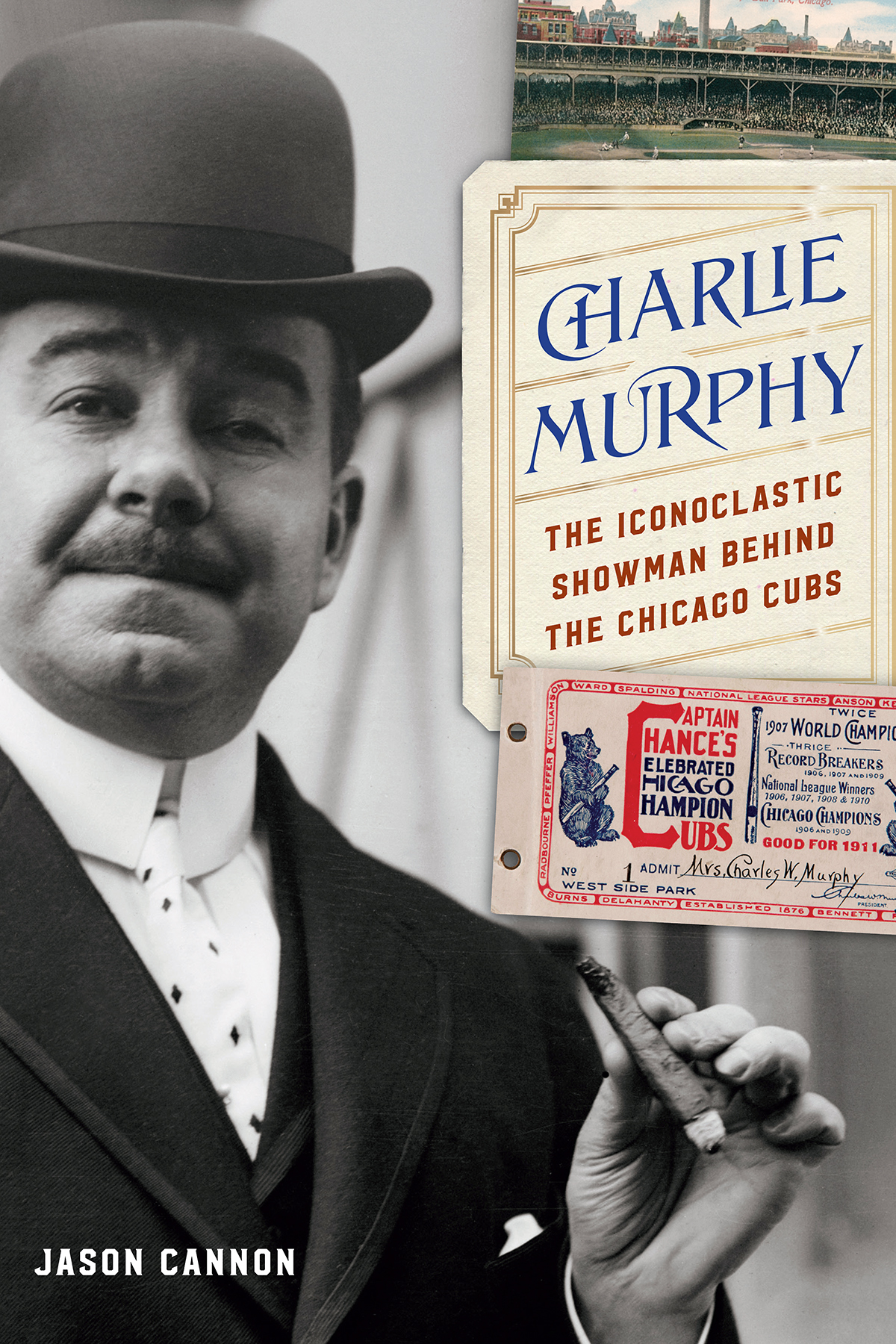
Over the first couple of decades of the twentieth century, Cubs owner and general manager Charles Murphy was as significant as any executive in baseball and one of its most interesting characters. Jason Cannon perceptively unwraps the man who oversaw Cubs championship seasons and was a principal actor in some of the eras most notable controversies and boardroom battles.
Daniel R. Levitt, coauthor of In Pursuit of Pennants: Baseball Operations from Deadball to Moneyball
Impeccably researched and masterfully written, Charlie Murphy tells the story of one of baseballs most well-known, forgotten owners. Only after youve read it do you realize how much you didnt know of Murphy and his impact on the game.
Willie Steele, editor of NINE : A Journal of Baseball History and Culture
Part exuberant showman and part irreverent iconoclast, Charles W. Murphy eventually aroused the ire of players, fans, and even the baseball establishment with his controversial decisions, which eventually led to his undoing. Jason Cannon deftly uses hundreds of articles, documents, interviews, and other original sources to look past Murphys reputation as an egotistical blowhard and reassess both his personal life and professional career. In so doing, the author reveals a detailed narrative of the Progressive Era and a compelling, richly nuanced portrait of one of baseballs most colorful characters.
Jack Bales, author of Before They Were the Cubs
Charlie Murphy
The Iconoclastic Showman behind the Chicago Cubs
Jason Cannon
University of Nebraska Press | Lincoln
2022 by Jason Cannon.
Cover designed by University of Nebraska Press; cover image: Charlie Murphy, courtesy Library of Congress, Prints & Photographs Division. Ephemera in the public domain.
Author photo Jenny Marvin.
All rights reserved
The University of Nebraska Press is part of a land-grant institution with campuses and programs on the past, present, and future homelands of the Pawnee, Ponca, Otoe-Missouria, Omaha, Dakota, Lakota, Kaw, Cheyenne, and Arapaho Peoples, as well as those of the relocated Ho-Chunk, Sac and Fox, and Iowa Peoples.
Library of Congress Cataloging-in-Publication Data
Names: Cannon, Jason, author.
Title: Charlie Murphy: the iconoclastic showman behind the Chicago Cubs / Jason Cannon.
Description: Lincoln: University of Nebraska Press, [2022] | Includes bibliographical references and index.
Identifiers: LCCN 2021040675
ISBN 9781496228635 (Hardback)
ISBN 9781496232205 (ePub)
ISBN 9781496232212 ( PDF )
Subjects: LCSH : Murphy, Charles Webb. | Baseball team ownersUnited StatesBiography. | Chicago Cubs (Baseball team)History. | BaseballIllinoisChicagoHistory. | World Series (Baseball) (1918) | BaseballCorrupt practicesUnited StatesHistory. | BISAC : SPORTS & RECREATION / Baseball / History | BIOGRAPHY & AUTOBIOGRAPHY / Sports
Classification: LCC GV 865. M 789 C 36 2022 | DDC 796.357092
[B]dc23/eng/20220201
LC record available at https://lccn.loc.gov/2021040675
The publisher does not have any control over and does not assume any responsibility for author or third-party websites or their content.
For Reagan
For a real wonder-story, the history of Charles W. Murphy outranks anything in baseball records.
Edward Mott Woolley, McClures
Contents
He Was a Showman...
On October 16, 1931, Charles Webb Murphys troubled heart, wracked with the repercussions of a stroke and hypertension, gave out. At sixty-three, Murphys death returned himif only momentarilyto the public spotlight after a decade of relative obscurity. In his heyday, primarily the first two decades of the twentieth century, when the team he owned, the Chicago Cubs, won four pennants and two World Series championships from 1905 through 1914, Murphys activities and comments routinely appeared in Americas sports pages. During his years in charge of the Cubs, Murphy upended the typical personality of the baseball magnate. He spoke exuberantly and frequently with newspaper reporters in much the same way as one of the Progressive Eras most powerful figures, Teddy Roosevelt. Unlike his peers, many of whom fought their battles privately, Murphys relentless public exposure of the underbelly of baseballs business side made him a target of the establishments wrath.
Hugh Fullerton proved to be an exception. A sportswriter now enshrined in the National Baseball Hall of Fame, Fullerton covered baseball for decades and famously played an important role in uncovering the Black Sox scandal in 1919. Most uniquely, Fullerton proved to be one of the few people around the game of baseball who shared a genuine personal friendship with Murphy. Fullerton met Murphy during their teenage years, before professional baseball made either man famous. They hailed from neighboring Ohio towns: Murphy lived in Wilmington, a small rural community triangulated in the west by Cincinnati, the north by Dayton, and the northeast by Columbus. Fullerton grew up in Hillsboro, a tiny enclave just over twenty miles to the southeast of Wilmington. They shared a passion for baseball in addition to their roots. Murph was my friend from boyhood, Fullerton reminisced. We were friends when he worked in a drug store in Wilmington and spent his meager money to back the Wilmington baseball team against the world. Fullertons awareness of Murphys spending habits suggests he knew another reason for his friends employment that transcended supporting the local nine. Charlie worked at the drug store to support his mother and three younger siblings, who desperately needed money after his father, who suffered an inordinate number of personal tragedies, drank himself into insanity, which forced the oldest son to become a vital financial resource for the family at the age of fifteen. Fullerton knew the fragile, abused Murphy underneath the latters layers of bluster, hustle, impetuousness, and explosions of creativity. Nearly five decades after meeting Murphy, Fullerton captured the incomparable personality of his old friend and the impact it had on baseball in a eulogy.
Murphy is dead. The jolly, turbulent little Irishman from Wilmington, who came out of Cincinnati to start more trouble and to make more baseball news than any man in the history of the game, finally lost out in his battle for health and the end came after years of suffering.
Charles Webb Murphy, son of Patrick and Bridget Murphy, was for half a dozen years the central figure of major league baseball and the most hated and upsetting figure in the game.
Yes, Murphy antagonized and annoyed people, including players, fans and, especially, his fellow owners. Frequently he did foolish things and aroused bitter criticism. Most of his mistakes were made by impetuosity. He did things like a flash, for which he afterwards was sorry, but instead of admitting it, he fought it out, recalled Fullerton. And Fullerton was not immune to Murphys quirks or impulsivity, but he remained drawn to his friends ebullient personality. As I used to tell Murph many times: Murphy, I love you but somehow I dont like a darned thing you ever do, he wrote. However, history remembers Murphys faults all too thoroughly while ignorantly belittling his successes as the accidental results of consistently being in the right place at the right time.
Throughout his career, Murphy delighted in stoking the ire of American League president Ban Johnson, much to the chagrin of the other National League owners, who frequently found themselves caught in the crosshairs of the infuriated Johnsons return fire. During one particularly heated squabble in 1911, Johnson fumed over Murphy in a letter to August Garry Herrmann, president of the Cincinnati Reds and member of the National Commission, in which he threatened to sever ties between the American and National Leagues. The American League regards C.W. Murphy as a menace to the integrity and good repute of baseball. If the National League can tolerate such a Club Owner, then we cannot with safety have close affiliation with the organization. The gentlemen who endorsed the resolution love peace and harmony, but it cannot be purchased at a sacrifice of their dignity and honor, Johnson warned.
Next page
